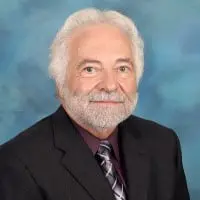 | 1 LU |
 | 1 LU |
Room: D139-140
Audience: Educators
Call to Action: Be a part of changing the outcomes of education. “We can’t” are two words that should never be used. Students need your engagement.
Abstract: Henrico County Public Schools utilized students in our trades-related programs to help design and build a 48,000 sq. ft. school inside of an existing mall to serve our adult population! This experience allowed students under the age of 18, to gain commercial construction experience while still in high school. The “Adult Education program at Regency Mall” will be a new location with a completely “New Concept” for providing continuing education in a post-secondary environment. The concept of an enclosed mall provides the opportunity to “sell” not a product but the next steps in your career pathway. HCPS will be able to serve over 5000 adult students each year in traditional adult ed programs such as ELL, general adult classes, and GED programs, while also incorporating more career-focused opportunities such as LPN, apprenticeship training, as well as financial literacy. The goal was to create a one-stop shop that allows adult students to easily identify and connect to the next steps. The unique design maintained the concept of “storefronts” to advertise career opportunities. Companies and businesses “sponsor” storefronts promoting and advertising. By being in a mall, students have additional opportunities to eat dinner before and after class. The hallway of the mall was transformed into the “commons area” where students mingle and work on projects in groups. The overall environment resembles a college but in the setting of a mall.
Learning Objectives:

Mac has served as Director of Career and Technical Education for Henrico County Public Schools Henrico since 2000. He started his career as an apprentice electrician at the Norfolk Naval Shipyard but has spent the last 38 years at Henrico County Schools as a teacher, Education Specialist, and for the last 23 years has served as the director. Mac received his Bachelor of Science degree from Va. Tech and his Masters in Administration and Supervision from Virginia Commonwealth University. With the ever-changing world of education, Mac has been recognized with various awards for his progressive approach to workforce development. Most recently he was recognized nationally for the “The CTE Letter of Intent Signing Day” which recognized students leaving high school and entering the workforce much like the signing day for athletes.

Beverly, the Workforce and Career Development Specialist for Henrico County Public Schools, has been promoting career and technical education programming for two decades through her work at the school level and her eight-year service on the Henrico County School Board. Beverly has worked tirelessly to break down outdated misconceptions and build bridges with businesses and community partners that create opportunities for internships, job shadowing, career exploration, and employment for students. She received her Bachelor of Arts from Virginia Commonwealth University and her Master of Education from the University of Richmond.

Susan has worked in the building industry for over thirty years and brought her experience to HCPS in 2015. Prior to that, she served as a consultant to Henrico Schools (as well as other school systems) for almost ten years. She started her path by earning a Bachelor of Science in Architecture and then began working for local A&E firms. The first firm she worked with had a commercial roof consulting department which she was cross-trained in. From that point forward, roof consulting work became a major part of her career and she earned the Registered Roof Consultant designation from the Roof Consultants Institute, Inc. As a design professional, she experienced a number of different projects and construction sites. However, her roofing specialty allowed her significantly more time on work sites and in the midst of the construction crews. She also worked for a commercial contractor during her career and experienced the construction workforce firsthand. As Director of Construction & Maintenance, she manages a department that employs the full gamut of tradesmen as well as architectural/engineering professionals.
Educational Visioning
Exhibits an understanding of best and next practices related to educational leadership, programming, teaching, learning, planning and facility design. Establishes credibility with educators, community members and design professionals while conceiving and leading a community-based visioning process. Demonstrates the ability to articulate the impact of learning environments on teaching and learning and uses that ability to facilitate a dialogue that uncovers the unique needs and long-range goals of an educational institution and its stakeholders – translating that into an actionable written/graphic program of requirements for the design practitioner.